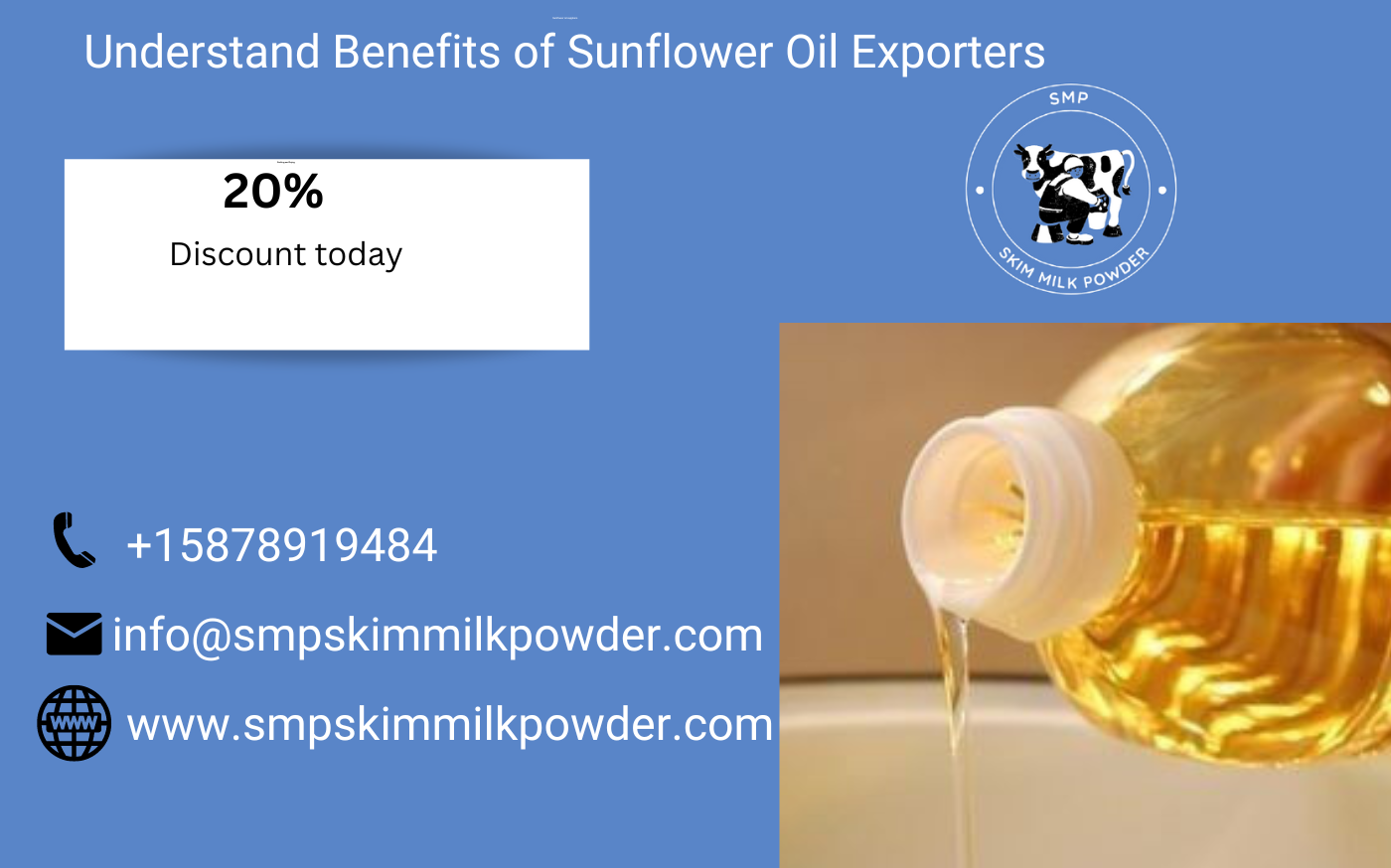Sunflower Oil Exporters
Sunflower oil exporters play a crucial role in the global supply chain, ensuring the distribution of sunflower oil from major producing regions to international markets. These exporters are involved in sourcing, processing, packaging, and shipping sunflower oil to meet the diverse demands of consumers and industries worldwide.
Key Roles and Functions of Sunflower Oil Exporters
- Sourcing and Procurement:
- Local Farmers and Producers: Exporters typically establish strong relationships with local farmers and sunflower oil producers to ensure a steady supply of high-quality sunflower seeds and oil.
- Quality Control: They implement stringent quality control measures to ensure that the oil meets international standards and regulations.
- Processing and Refining:
- Crushing and Extracting: Sunflower seeds are crushed and oil is extracted using various methods, including cold pressing and solvent extraction.
- Refining: The crude oil is often refined to remove impurities, improve shelf life, and achieve the desired flavor and color. Refined sunflower oil is preferred for its neutral taste and high smoke point.
- Packaging:
- Consumer Packaging: Exporters offer sunflower oil in various packaging options, including bottles, cans, and bulk containers, to cater to different market needs.
- Industrial Packaging: For commercial and industrial clients, sunflower oil is packaged in larger containers such as drums and intermediate bulk containers (IBCs).
- Logistics and Distribution:
- Export Documentation: Exporters handle all necessary documentation, including certificates of origin, quality certificates, and customs declarations.
- Shipping and Transportation: They arrange for the transportation of sunflower oil via sea, air, or land, ensuring timely and efficient delivery to international markets.
Major Sunflower Oil Exporting Countries
- Ukraine:
- Leading Exporter: Ukraine is the world’s largest exporter of sunflower oil, accounting for a significant share of global exports.
- High-Quality Production: Known for its fertile soil and favorable climate, Ukraine produces high-quality sunflower oil that meets international standards.
- Russia:
- Major Producer: Russia is another leading producer and exporter of sunflower oil, with extensive sunflower cultivation areas.
- Competitive Pricing: Russian sunflower oil is often competitively priced, making it attractive to global buyers.
- Argentina:
- South American Leader: Argentina is the largest exporter of sunflower oil in South America, benefiting from a well-developed agricultural sector.
- Diversified Exports: The country exports both refined and crude sunflower oil to various international markets.
- European Union:
- Notable Exporters: Countries like Hungary, Romania, and Bulgaria are significant exporters within the EU, contributing to the region’s overall export capacity.
- Quality and Standards: EU exporters are known for adhering to high quality and safety standards, making their sunflower oil highly sought after.
Market Trends and Opportunities
- Growing Demand:
- Health Consciousness: Increasing awareness of the health benefits of sunflower oil, such as its high vitamin E content and favorable fatty acid profile, drives demand.
- Culinary Uses: Its versatility in cooking, from frying to baking, makes it a staple in many kitchens worldwide.
- Emerging Markets:
- Asia and Africa: Growing middle-class populations and changing dietary preferences in these regions present significant opportunities for exporters.
- Food Industry: The expanding food processing industry in emerging markets boosts the demand for sunflower oil as an ingredient.
- Sustainability and Traceability:
- Sustainable Practices: Exporters are increasingly focusing on sustainable farming and production practices to meet consumer demand for environmentally friendly products.
- Traceability: Advanced tracking systems are being implemented to provide transparency and ensure the traceability of sunflower oil from farm to table.
Challenges Faced by Sunflower Oil Exporters
- Market Volatility:
- Price Fluctuations: Global prices of sunflower oil can be volatile due to factors such as weather conditions, crop yields, and geopolitical tensions.
- Currency Exchange Rates: Fluctuations in exchange rates can impact the profitability of exports.
- Regulatory Compliance:
- International Standards: Exporters must comply with varying international standards and regulations, which can be complex and stringent.
- Trade Barriers: Tariffs and trade barriers imposed by importing countries can pose challenges to market access.
- Supply Chain Disruptions:
- Logistics Challenges: Transportation and logistical issues, such as port congestion and shipping delays, can affect the timely delivery of sunflower oil.
- Pandemic Impact: The COVID-19 pandemic has highlighted vulnerabilities in global supply chains, affecting production and export activities.
In conclusion, sunflower oil exporters are essential players in the global agricultural and food industry. By ensuring the efficient production, processing, and distribution of sunflower oil, they meet the growing global demand and contribute significantly to the economies of major producing countries. Despite facing various challenges, the prospects for sunflower oil exporters remain strong, driven by increasing health awareness and expanding culinary uses worldwide.

